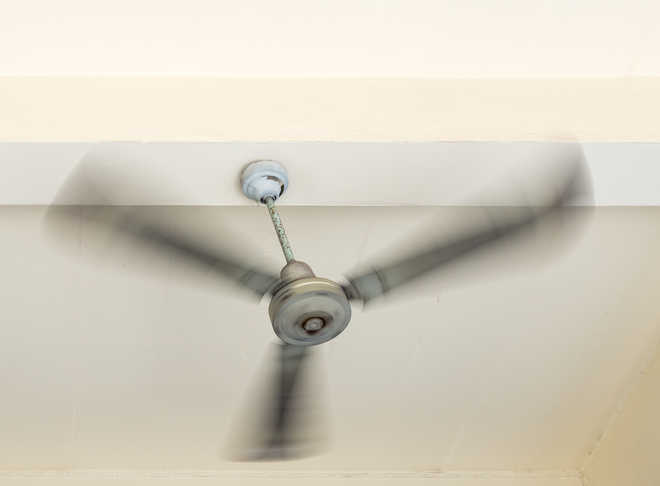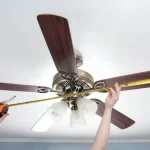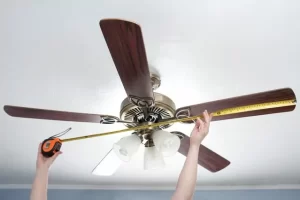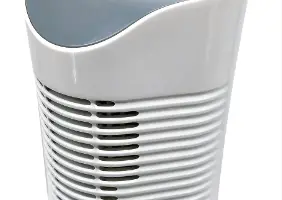Have you ever stopped to think about the potential dangers of a ceiling fan? While ceiling fans may seem like a safe and practical appliance, could it actually fall from the ceiling? This article will answer the question: can a ceiling fan fall?
Contents
The thought of a heavy object falling from the ceiling can be intimidating. But what exactly are the risks associated with having a ceiling fan in your home? Could it really come crashing down, or is there something we can do to prevent this from happening? We’ll look into all aspects of this issue, including safety measures and common causes of falls.

Finally, we’ll provide advice on how to make sure your ceiling fan is safely installed and maintained. By understanding these important details, you will be able to rest assured that your home is safe and secure. So let’s get started – can a ceiling fan fall?
What Are The Chances Of A Ceiling Fan Falling On You?
The chances of a ceiling fan falling on you depend on several factors such as the age and quality of the fan, how well it has been installed, and how it is being used.
Generally, well-maintained ceiling fans that have been properly installed have a low risk of falling. However, if a fan is old, damaged, or has not been installed correctly, it could pose a risk of falling. Additionally, if the fan is being used improperly, such as if it is being hung from a hook or used with an inappropriate mount, this could increase the likelihood of it falling.
To minimize the risk of a ceiling fan falling, it is important to ensure that it is installed properly by a qualified professional, regularly checked for any damage, and used in accordance with the manufacturer’s instructions. It is also a good idea to avoid hanging anything heavy from the fan and to avoid swinging on it or using it for any other purpose than its intended function.
Can A Ceiling Fan Fall? – Reasons It May Fall Out of Place
Yes, ceiling fans can fall out of their place for various reasons. Some of the most common reasons include:
- Improper Installation: If a ceiling fan is not installed correctly or is installed using improper hardware, it can come loose and fall.
- Age and Wear and Tear: Over time, the screws, bolts, and other hardware that hold the fan in place can become loose or damaged, causing the fan to wobble or fall.
- Vibration: If the fan is not balanced correctly or the blades are damaged, it can cause vibration that can loosen the mounting hardware over time.
- External Forces: External forces such as earthquakes, strong winds, or accidental impact can also cause a ceiling fan to fall.
- Incorrect Use: Using the fan for purposes other than its intended function, such as hanging things from it, can cause damage to the fan and increase the risk of it falling.
To prevent a ceiling fan from falling, it is important to ensure that it is installed correctly using the manufacturer’s recommended hardware, regularly inspected for wear and tear, and used appropriately.
How Do I Know If My Ceiling Fan Is Going To Fall Off?
There are several signs that your ceiling fan may be at risk of falling off. Here are a few indicators to watch out for:
- Wobbling: If your ceiling fan wobbles excessively, it may be a sign that it is not securely attached to the ceiling and is at risk of falling.
- Unusual Noises: If you hear any unusual noises coming from your fan, such as clicking or grinding, it may be a sign that the mounting hardware is loose or damaged.
- Loose Blades: If the blades of your fan are loose or wobbly, it may be a sign that the mounting hardware is not holding the fan securely.
- Visible Damage: If you notice any visible damage to your fan, such as cracks or broken parts, it may be a sign that the fan is not safe to use.
- Age: If your fan is older and has not been regularly inspected or maintained, it may be at a higher risk of falling off.
If you notice any of these signs, it is important to take action immediately. Turn off the fan and have it inspected by a qualified professional to determine the cause of the problem and whether the fan can be repaired or needs to be replaced.
How Can I Prevent My Ceiling Fan From Falling?
Preventing a ceiling fan from falling is not difficult but it does require some effort. The following list provides several ways to ensure the safety of the fan and those around it:
- Make sure that your ceiling fan is securely attached to the ceiling, preferably with screws or bolts.
- If a chain pulls the fan, make sure it’s short enough that there’s no risk of someone getting caught in it and pulling it down.
- Check that all wires are properly secured and not prone to coming loose over time.
- Inspect the blades for signs of wear and tear, such as cracks or rust, which can cause them to become unstable or weaken their connection with the motor housing and cause them to fall off.
To maintain a safe environment, inspect your ceiling fan regularly for any signs of damage and replace worn out parts as soon as possible. Additionally, if you’re mounting a new fan, always read the installation instructions carefully and follow the manufacturer’s recommendations for secure mounting methods so that you don’t have any surprises down the line. Taking these steps will help keep your home safe from potential harm due to a falling ceiling fan.
Can A Ceiling Fan Fall During An Earthquake?
It’s a common question: can a ceiling fan fall during an earthquake? The answer is yes, it can. Earthquakes create seismic waves that travel through the ground and shake everything in their path. Depending on the intensity of the quake, this shaking can cause any number of objects to become unstable and fall from ceilings or walls, including ceiling fans.
The key factor in determining whether a ceiling fan will fall during an earthquake is how securely it was installed. Ceiling fans should be mounted using appropriate fasteners such as screws and anchors that are designed to withstand seismic forces. Additionally, the fan should be balanced properly so that it won’t vibrate excessively when operating. If these steps are not followed, the fan could easily become unsteady and eventually come loose during an earthquake.
For added security, you may want to look into installing anti-seismic mounts for your ceiling fan. These devices help keep the fan in place even under extreme shaking conditions and provide extra peace of mind when it comes to keeping your home safe during an earthquake.
Conclusion
It’s natural to be concerned about the safety of a ceiling fan, especially when it’s installed in your home. But with the proper precautions and regular maintenance, you can rest assured that you and your family are safe from any falling fans.
First, make sure that you have securely fastened the fan to the ceiling using appropriate hardware. Then check regularly for any signs of wear or damage that could lead to a fall. If you suspect that something may be wrong, contact a professional to come in and inspect it.
Finally, if you live in an area prone to earthquakes, it’s especially important to ensure your ceiling fan is properly secured and inspected on a regular basis. Taking these steps will help ensure that your ceiling fan won’t be a danger to anyone in your home.










Add Comment